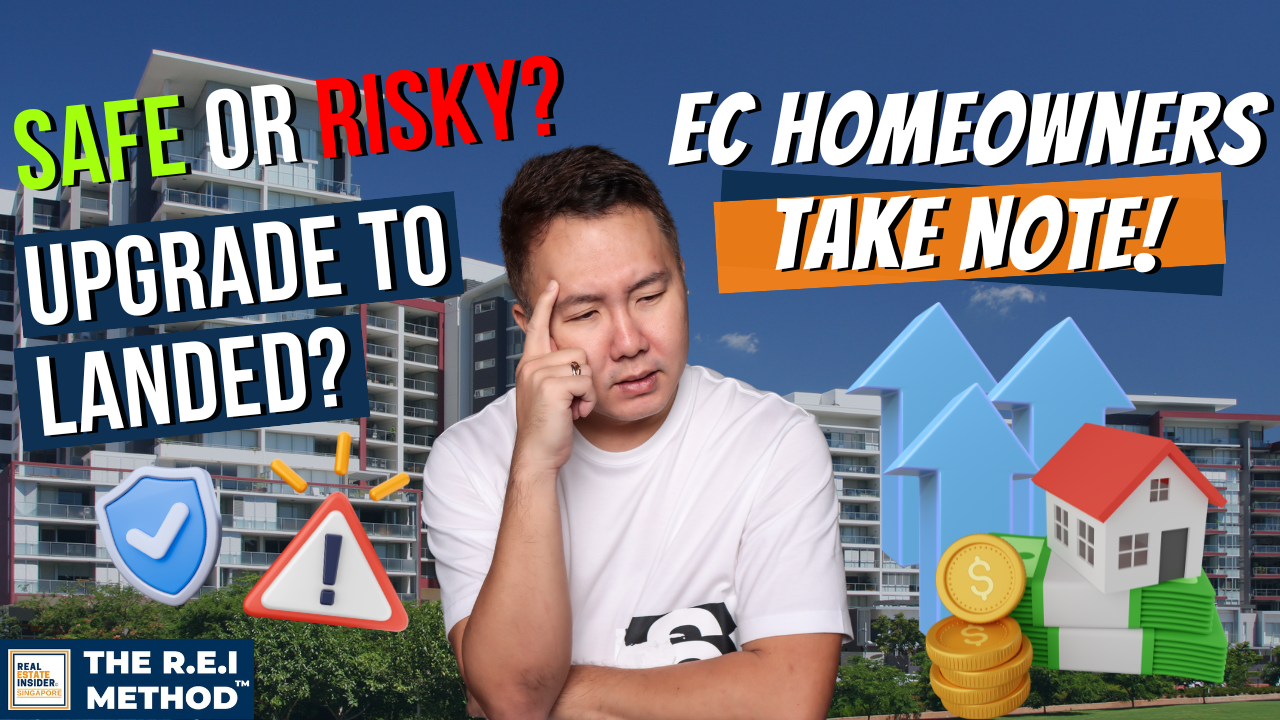For many, upgrading to a landed property represents the ultimate step in homeownership. The idea of having more space, privacy, and the potential for long-term investment gains is undeniably appealing. But the big question is: Can you really afford it?
From hefty down payments to ongoing maintenance costs, upgrading from an executive condominium (EC) to a landed home involves much more than just dreaming.
If you’re an EC owner thinking about taking this leap, it’s time to break down the real costs and see if this goal is truly within reach!
Can Your Income Support the Upgrade?
Let’s assume you’re part of a middle-income family earning around $200,000 annually, including bonuses. You and your spouse juggle two careers while raising two children, and you're trying to balance property decisions with your lifestyle needs. Sound familiar? You’re not alone.
With a combined income like yours, you’re in a favorable position. However, smart money management is key to ensuring your dollars work for you, especially when considering such a significant property upgrade.
Upgrading to a landed home may seem like the next logical step, but let’s dive into some key strategies that could help you maximize your real estate opportunities without stretching your budget or compromising your long-term financial health.
The Brownstone: A Case Study
To begin, let's take a real-world example: Your EC, The Brownstone, which you bought in 2015 and reached its Minimum Occupation Period (MOP) in late 2022. Since then, it’s seen solid performance. But how does its value compare to other developments? And how does it stack up against current Canberra-area launches?
The Brownstone has shown remarkable price growth - around 70.48% over nine years, translating to an annual growth rate of 7.83%. Interestingly, this price surge occurred mostly during resale transactions, making it stand out from the norm.
But even though The Brownstone has performed well, the big question remains: Does selling your EC and upgrading to a landed home make sense for you?
Let’s Talk Affordability
Here’s where things get tricky. You’ll need to evaluate your actual affordability, taking into account not only the purchase price of a landed property but also the associated costs:
- Down Payment: You’ll need to fork out at least 25% of the property price upfront.
- Stamp Duty: Additional Buyer’s Stamp Duty (ABSD) could apply depending on your situation.
- Renovation & Maintenance: Owning a landed home means significantly higher maintenance costs.
It’s crucial to consider these numbers in detail before making any decisions. For middle-income families like yours, these costs can quickly add up, and stretching your budget too thin could affect your financial stability in the long term.
Does It Align with Your Lifestyle?
Beyond the financial considerations, think about your lifestyle. Does a landed property align with your family’s current needs and future goals?
With two careers and two kids, you’re likely balancing a busy schedule. A landed property offers space and privacy but comes with increased maintenance responsibilities. Is this something you’re prepared to take on?
If you’re looking for a more hands-off investment, upgrading to a larger condo might be more suitable. Condos often come with facilities like pools and gyms, which could complement your family’s lifestyle without the upkeep of a landed home.
What’s the Market Saying?
It’s also important to compare how non-landed properties (like condos) have performed against landed properties in recent years.
In the past decade, both have seen solid growth, but there’s a significant difference between freehold and leasehold landed properties. Freehold homes tend to outperform their leasehold counterparts over time, and with freehold land becoming increasingly scarce, this could be a factor to consider.
So, while the dream of upgrading to a landed home is enticing, it’s vital to take a long-term view. If you’re planning to hold the property for many years, a freehold landed home could be a strong investment. But if you’re looking for more flexibility or a shorter-term investment, sticking with a condo might be the better choice.
At the end of the day, upgrading from an EC to a landed home is a significant financial commitment. It’s not just about having more space or privacy, it’s about ensuring that your decision supports your long-term financial stability and lifestyle aspirations.
Whether you decide to stay in your EC, upgrade to a larger condo, or pursue the dream of owning a landed home, be sure to weigh the costs and benefits carefully. Use research, data, and professional advice to guide you through this major decision.
